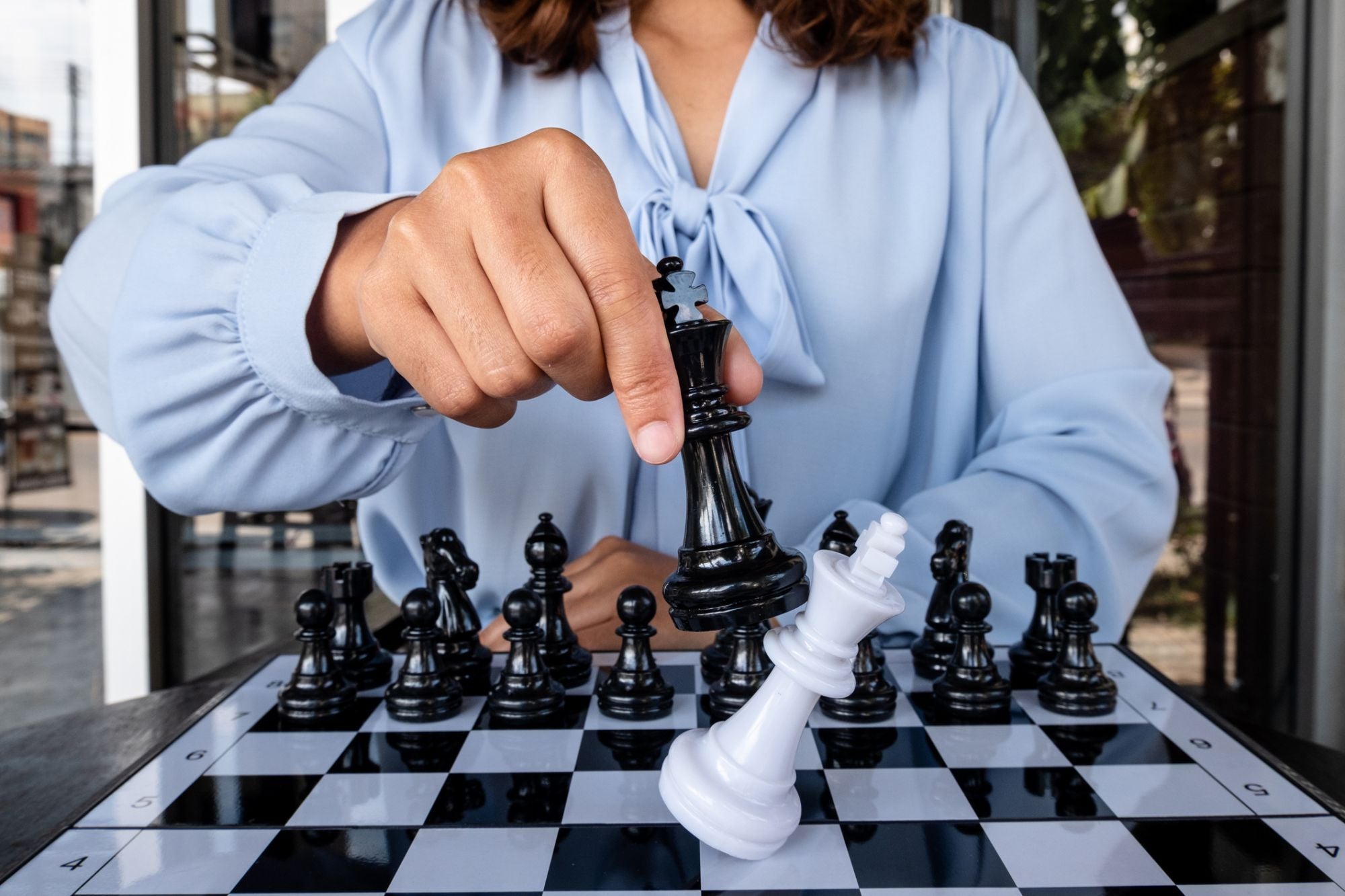How Chess New Players Can Improve Quickly
Wiki Article
Why You Need To Play Chess: The Advantages of Engaging in This Ageless Pundit Challenge
Chess is more than a simple video game; it functions as a rigorous mental exercise that sharpens various cognitive skills. Gamers take part in strategic reasoning and create analytic abilities, which can have lasting advantages in everyday life. The self-control needed for renovation promotes patience and durability. The real significance of chess exists not just in its intellectual needs yet in the connections it promotes within an area. Exploring these measurements discloses much concerning why chess remains ageless.Enhancing Cognitive Abilities
Playing chess significantly improves cognitive skills, making it an important task for individuals of any ages. The video game demands calculated thinking and insight, needing players to expect their opponent's steps while formulating a winning strategy. This psychological exercise develops emphasis and concentration, important components of cognitive function.
Chess encourages creative thinking, prompting gamers to discover cutting-edge techniques and unusual methods to the video game. As they browse the chessboard, people establish perseverance and strength, vital qualities for cognitive development. Overall, the multifaceted cognitive advantages of chess make it an enhancing quest, promoting long-lasting psychological agility and intellectual involvement.
Improving Problem-Solving Talents
Numerous researches have shown that engaging in chess can greatly improve problem-solving capacities. The video game needs players to examine complicated settings and anticipate the challenger's relocations, cultivating vital assuming abilities. As they browse various scenarios, chess gamers develop the ability to examine multiple results and make critical decisions under pressure. This procedure boosts their ability to method real-life problems with a structured frame of mind.Chess advertises the recognition of patterns and the application of logical reasoning, abilities that are essential in reliable problem-solving. Players learn to analyze risks and incentives, refining their judgment in uncertain circumstances. The repetitive nature of chess play enhances these skills, enabling individuals to transfer their boosted problem-solving abilities to scholastic and expert contexts. Eventually, chess acts as a beneficial device for anybody looking for to develop their analytical abilities and enhance their total cognitive functioning in tough circumstances.
Cultivating Patience and Self-control
While involving in chess can be an interesting experience, it additionally calls for a substantial degree of patience and technique. Players need to learn to meticulously take into consideration each step, considering possible results and techniques. This thoughtful strategy fosters a frame of mind that values lasting success over immediate satisfaction. In chess, hasty choices usually cause undesirable repercussions, enhancing the significance of taking one's time to assess the board and prepare for a challenger's feedbacks.
Technique is more grown with regular practice and research. Players usually devote hours to boosting their skills, studying techniques, and examining past games. This dedication to grasping the game imparts a feeling of obligation and perseverance, crucial characteristics that expand past the chessboard. Inevitably, the combination of patience and discipline not only boosts a gamer's chess capacities yet also contributes to personal development, gearing up individuals with important devices for maneuvering challenges in various facets of life.
Fostering Creativity and Imagination

Strategizing relocations entails not simply reasoning yet also the ability to expect an opponent's actions, motivating gamers to envision numerous paths and options. As gamers trying out various techniques, they learn to innovate and adjust, improving their creative analytic abilities.
The game's complexity invites gamers to explore unique concepts and approaches, leading to individual styles of play - Chess. This exploration nurtures a sense of creative expression, as each player crafts their very own approach to obstacles on the board. Eventually, chess ends up being a canvas for creativity, permitting individuals to express their one-of-a-kind viewpoints while creating their creative capacities
Building Social Connections and Community
Playing chess supplies possibilities for people to network through tournaments and local chess clubs. These environments promote connections amongst players, creating a sense of community focused around a common passion. Participating in these activities not just boosts abilities but also constructs long lasting connections.Networking With Tournaments
When individuals participate in chess events, they often discover themselves immersed in a dynamic community of like-minded people. These events give an excellent platform for gamers to build connections, share approaches, and commemorate their interest for the video game. Participating in friendly competition promotes camaraderie, as gamers from diverse backgrounds integrated to challenge each other. Networking chances abound, with numerous individuals creating enduring relationships that expand beyond the chessboard. In addition, these competitions typically draw in sponsors and chess lovers, even more enhancing the capacity for expert connections. As gamers involve in conversations about techniques and experiences, they develop a network that can lead to future collaborations and chances within you can look here the chess world and beyond.Local Chess Clubs

Supplying a Fun and Involving Difficulty
Chess offers an uniquely boosting experience that astounds players of every ages, as it combines strategic reasoning with the adventure of competition. This classic game presents an engaging obstacle, encouraging people to think seriously and artistically. Each match unfolds as a fight of wits, where gamers need to anticipate their opponent's moves while developing their very own techniques.The intellectual involvement chess provides is matched by its capacity to entertain. Players frequently find themselves submersed in the video game, misplacing time as they navigate intricate placements and tactical problems (Chess). This enhanced focus promotes a feeling of success, particularly when a hard move brings about triumph
Furthermore, chess advertises social interaction, enabling gamers to bond over shared experiences and challenges. The video game's endless variants assure that no two sessions are alike, maintaining individuals passionate to improve their abilities and techniques. This vibrant mix of obstacle and enjoyment makes chess an irresistible quest.
Often Asked Inquiries
Can Chess Be Played Online or in Person?
Chess can be played both online and in person. On the internet platforms use gamers the benefit of contending against opponents worldwide, while in-person video games foster social communication and physical existence, improving the general experience.What Age Is Best to Begin Understanding Chess?
Professionals suggest that youngsters can begin discovering chess as very early as age 5 or 6. At this age, they can understand basic concepts, boosting cognitive skills while cultivating a love for the video game that lasts a lifetime.Are There Chess Tournaments for Beginners?
click over here now Yes, there are chess events particularly designed for novices. These events offer an encouraging setting for newbie gamers to get experience, improve their skills, and appreciate the affordable spirit of chess without encountering advanced challengers.The length of time Does It Take to End Up Being Efficient at Chess?
Coming to be competent at chess usually calls for consistent method over a number of months to years. Aspects such as individual devotion, prior experience, and research study of methods considerably influence the time required to get to an experienced degree.What Resources Are Available for Knowing Chess Strategies?
Countless resources exist for discovering chess techniques, including online tutorials, publications by renowned writers, chess applications, and interactive web sites. Lots of players likewise take advantage of signing up with local clubs or getting involved in on-line discussion forums for real-time understandings.Report this wiki page